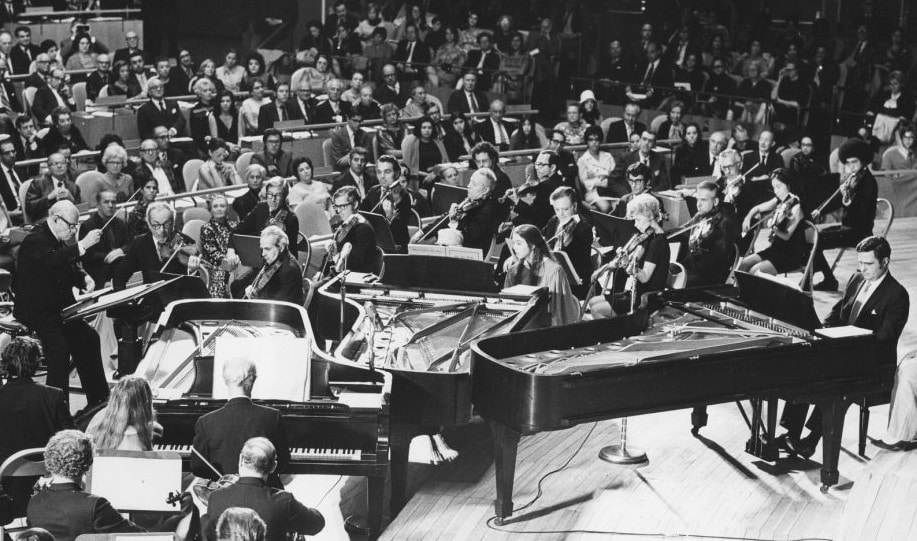Professor is erased by UK conservatoire
NewsUntil this morning, the Royal Birmingham Conservatoire had a microsite for one of its star teachers, Professor Wen Zhou Li.
That has been smartly erased after the professor was criticised by a High Court judge for his conduct in a case where damages were awarded for sexual grooming and abuse at Chetham’s School in Manchester.
The professor has not been charged and has denied wrongdoing. Read here.
The full court report can be accessed here. It has precedential ramifications for abuse victoms at all UK music schools






Welcome to the wonderful world of “woke.” Just like the good ole days of the Evil Empire when at an order from Unca Joe pages of the Soviet Encyclopedia were deleted annually do some poor Hero of the Soviet Union made it on to his s**t list.
Hard to be sure. Yes, the victim was tainted, but the abysmal record of convictions for rape in England are well-known. In a crime notoriously difficult to prove (he said/she said — God, imagine the variations on that in wokespeak) it looks as if the burden of proof is ridiculously high.
However, your point is well taken. Wen Zhou Li was released from the court “without a stain on his character,” free to resume his career. Unless RBC REALLY knows something the rest of us (meaning the court) don’t, their action seems pretty cruel. But we all know that the removal of James Levine and Placido Domingo from so many concert halls and opera houses of the world was due to “open secrets.” In the case of students, where RBC has a duty of care, there are still questions to be raised.
However it sets a very, very scary precedent for the truly innocent men — of which Wen may be one and of which Wen most decidedly legally is.
The key difference between this case and the one in 2016 was that the 2016 case was a criminal prosecution and this was a civil claim for compensation. In a criminal case, guilt must be proved beyond reasonable doubt. In a civil claim, it need only be more likely than not, ie more than a 50% chance. Juries in criminal cases are told that they must acquit if they think it’s likely that the accused is guilty but they cannot be sure.
There is nothing inherently inconsistent between an acquittal in criminal proceedings and a finding of liability in civil proceedings.
Another big difference is that a judge in civil proceedings has to give reasons, whereas a jury does not give reasons, and in England and Wales jurors are forbidden from disclosing their reasons to anyone at all. The judgment here gives very detailed reasons, including an explanation for the decision by the prosecution to discontinue the proceedings in 2016. In very broad terms, the prosecution lawyers believed that a jury would not convict in the light of a report from 2009 casting doubt on the complainant’s ability to provide accurate testimony in relation to allegations of sexual abuse made in a different country against five individuals wholly unconnected with Mr Li.
Despite the judge’s very lengthy reasons, it is impossible for anyone not physically present in court, or at least anyone without sight of the transcript, to form an independent view of the case. The judge accepted the complainant’s evidence and rejected that of Mr Li based in part on their performance in the witness box.
The judge clearly attached less weight to the report casting doubt on the complainant’s ability to give accurate evidence than the prosecution thought a jury of ordinary members of the public would. The judge’s approach is broadly consistent with the concept of “rape myths”, ie commonly held beliefs about what is or is not credible are simply wrong.
The complainant’s allegations related to events in 1996-7, so nearly a quarter of a century before the civil trial. Third party witnesses were interviewed by the police in 2013. The judge decided that the usual time limits for bringing a civil claim should be disapplied.
Norman is absolutely right – this case has serious implications for music colleges where there has undoubtedly been a dismal history of sexual abuse.
It also has serious implications for anyone against whom a disturbed individual chooses to make allegations decades later, because a finding of civil liability will destroy that person’s life despite there being up to a 49.9% chance that he was completely innocent.
While in theory a civil case like this is “50-50”, in practise the charge will only be accepted if there is some quite reasonable evidence beyond the testimony of the two principals in the case.